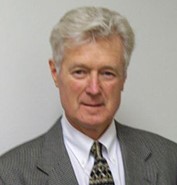|
Richard focuses heavily on energy, aligning Commerce with Innovate Washington and folding in our industry sector-based economic development strategies and execution. Rick holds a BA in Urban and Regional Planning from the UW and a Masters in Public Administration from the John F. Kennedy School of Government at Harvard University. Rick founded Locke Systems, Inc., a successful energy management company he sold to GTE in 1992 and served as Vice President of Government Information Systems. Most recently, he served as President and CEO of DataWeb, Inc. in the cloud-computing sector. He was also CEO of Alligator Corporation, where he licensed a high-temperature, pressurized liquid water purification system capable of making a high impact contribution to water treatment and fuel production in developing economies. Prior to his work at Alligator, Rick was Manager of Environmental Technologies at BATTELLE Pacific Northwest National Laboratory. Rick is adept at building effective partnerships. He has served on a number of nonprofit boards, as well as serving a term on the Public Disclosure Commission, appointed by Governor Gary Locke. He also helped write and produce the award-winning film Last Farmer at the Pike Place Market, a look at the inter-relationship of public policy and the Western Washington Agriculture Industry. |


|
Richard Locke Executive Director, Office of Economic Development & Competitiveness |
|
NWESS Keynote Speaker
Business As Usual is Not Good Enough: Deploying Energy Innovation in Washington Electrical Grid |
|
IEEE-Northwest Energy Systems Symposium |
|
University of Washington Seattle, WA 98195 April 30-May 1, 2014 |


|
Abstract: Electric utilities across the state of Washington have pursued more efficient and cost-effective operating strategies for decades. Early thinking was pretty much confined to finding new sources of generation. Little attention was given to improved models for delivering energy to growing service areas. In recent years we have seen a willingness of the energy industry to adopt new strategies and approaches to meeting their public mandate to deliver low-cost supply of electrical energy resources to every corner of the state. A number of factors are driving this change including a political process that is populated by interest groups that bring well informed contributions to the debate perhaps brought by the stark reality of global warming. We are also seeing a new generation of innovators and thought leaders enter the industry bringing technologies and ideas that promise to solve specific sets of problems. Which of these technologies can actually deliver value over a long term is still a question. Many of us in the policy arena are currently developing structured methodologies for evaluating these new approaches and equally important where they might reside in the standard industry continuum of Generation, Transmission, Distribution and Behind-the-Meter Consumption. This paper describes the use cases developed by the Washington State Energy Office in fulfilling its mandate to complete the Smart Grid Program. Each of these use cases have been presented by a partner utility in cooperation with the Pacific Northwest National Laboratory. Our analysis will include a description of the energy storage device that was deployed; the problem set that the device was intended to address and the costs associated with both purchasing and operating the technology. Picking the right technology to solve the right set of problems is a challenge faced by every utility across the state; indeed across the country. We cannot afford to lose time or precious resources in attempting to deploy a technology that does not perform to requirement. We must make intelligent decisions, based on sound information as we move toward a carbon neutral energy industry. This paper and our work in the Smart Grid Program seek to contribute significantly to this challenge. |